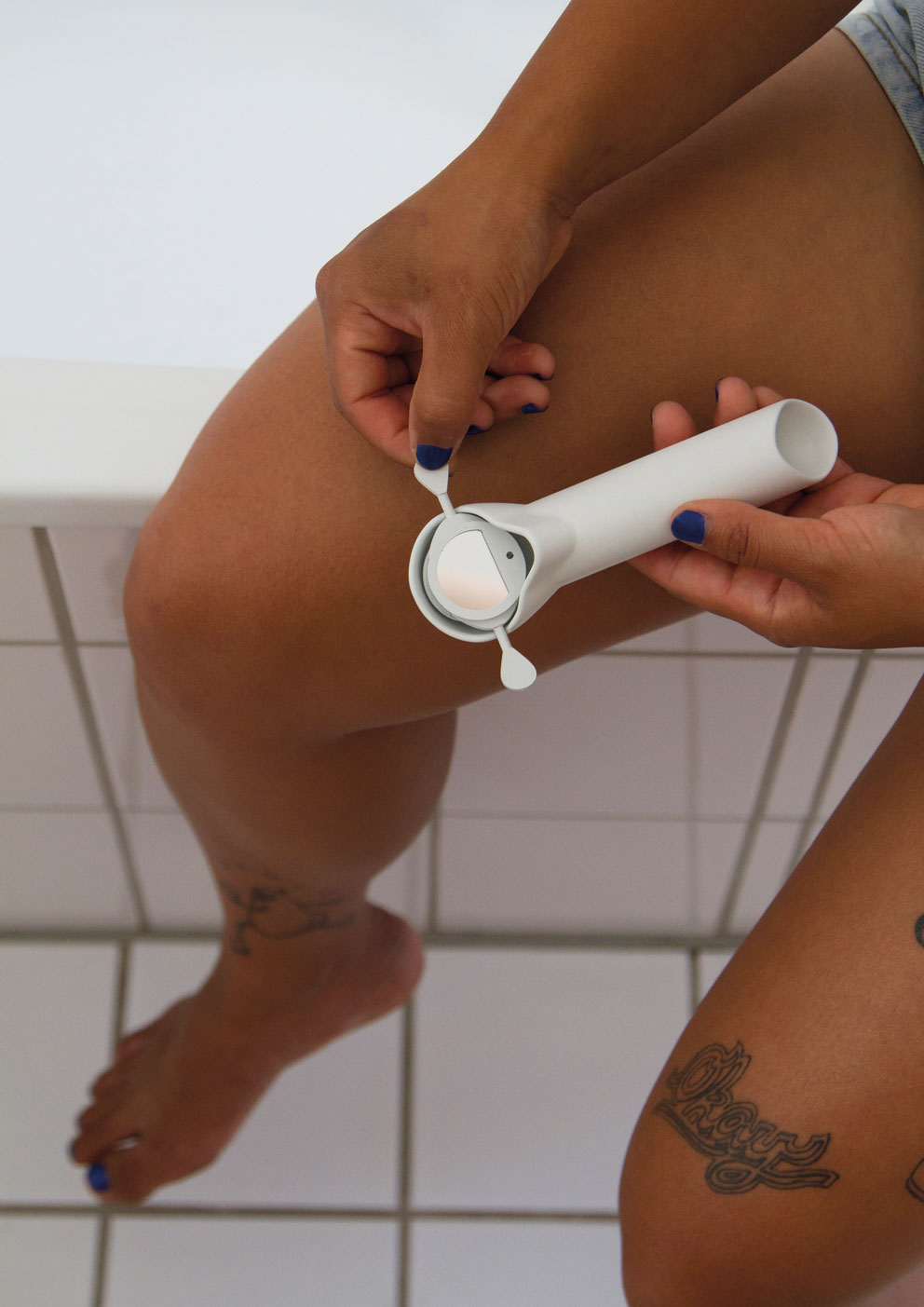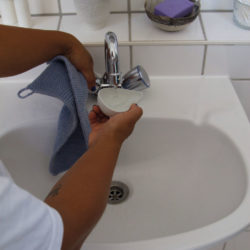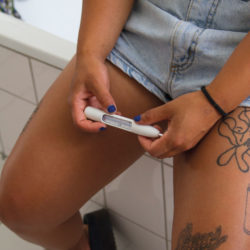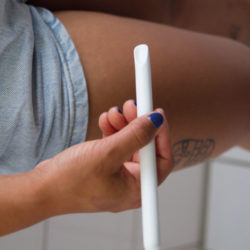Beside Blood
Description
"Beside Blood - cycle exploration" is a project for menstruating persons and consists of five objects and an explanatory booklet. The instruments focus on different aspects of the cycle, the change of: cervix, basal body temperature, cervical fluid, breast and menorrhea. The set includes self speculum, thermometer, cervical stick, breast measurement, bowl and supporting booklet.What is the Topic?
The work deals with the menstrual cycle. The social taboo on the cycle extends so much that menstruating people themselves often know not very much about it and the topic is related to shame. This circumstance causes insecurities. Signs of illness are often not noticed and there is not much communication about problems. Empowering menstruating persons themselves can help to reposition the topic in society.
Why does it look like this?
The design breaks with existing images and does not use the formal language of gynaecological examination objects. Especially since these are filled with anxiety for many people and their use requires practice. Form and material express the respect for the users. In this way the objects become aesthetic self-care accessories. The simple and shapely instruments are distinguished from infantile designed products, such as pink tampon packaging printed with butterflies and flowers.
What is special?
The set gives interested people the opportunity to explore cycle-related changes in a self-chosen atmosphere and thereby supports them in dealing with their body with more confidence.
What is new?
In the seventies feminists in the USA built the first women's health centres. They discussed the cycle, contraception and abortion, but also examined themselves. The exchange and passing on of knowledge helped them to rebel against the social taboo and to stand up for sexual self-determination. They also gained a new position vis-à-vis doctors and learned more about what the gynaecologists practiced on them. However, there is still no toolkit for menstrual people who want to be aware of cycle-related changes. They have to help themselves with self-built provisional arrangements.




